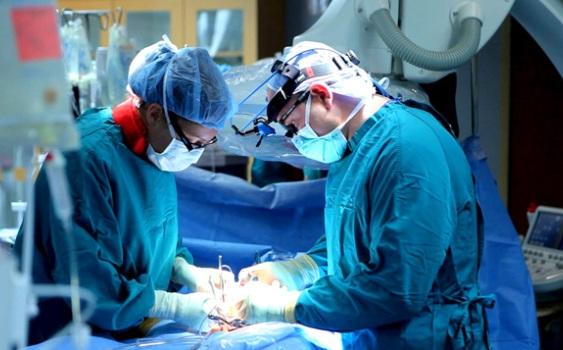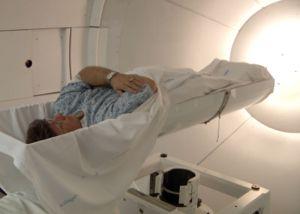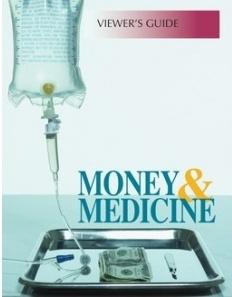
A program called Money & Medicine, showing up less than two months ahead of a national election, could be suspect of pushing an agenda that is either for or against the Affordable Health Care Act (aka "Obamacare"). But this hour-long special is appearing Tuesday, Sept. 25 at 8 p.m. ET (check local listings) on PBS, where hidden/not-so-hidden agendas are as forbidden as infomercials.
Its examination of health-care accessibility and cost-containment is tinted neither red nor blue. And because it contains interviews with medical professionals, observers and participants who share no one common point of view, there's not a soapbox visible in a single shot in the program (though post-broadcast cries of pain from real or imagined gored oxen wouldn't be a surprise).
Inside of 60 minutes, it examines four somewhat volatile aspects of health care: end-of-life care; Caesarean-section childbirth; prostate cancer treatment; and diagnostic testing. It looks at spending versus results; interviews patients, family and care providers; and seeks out experts whose job it is to observe medical care.
There's a man who fought (and eventually sued) the hospital that, after 10 months and more than $5 million of intensive care for his mother, decided further extraordinary measures were useless. He calls that decision "a medical execution" delivered by "a death panel."

There's a professional whose research has shown aggressive prostate treatment often is unnecessary: "You have to remove about 15 prostates to prevent one prostate-cancer death." (An interesting point made in the program is autopsies of older individuals showed evidence of prostate cancer, though none of them died from it.)
There's the argument that the ever-increasing cost of diagnostic equipment and the first-choice reliance of some physicians to utilize them, needed or not, can be linked to a high number of radiation-related deaths annually.
And two money-related issues of high volatility are touched on when the statements, "you might sue me" and "I get paid more" are mentioned as sometime-motivators of physician actions.
PBS-style, the program raises questions and presents information, ideally giving viewers facts upon which they can base future decisions.
Producer-director Roger Weisberg said in a recent interview he doesn't think the program will ignite new partisan explosives. He has shown the program to Republican and Democratic lawmakers and the reaction he has seen is that both sides want to "slow growth and contain medical costs. Where they differ are in the remedies."
Following two years of production and access to all the people, and more, who appear in the program, Weisberg has decided what at least one remedy to the problem is: "I think that what needs to change is that patients need to confer with their primary-care physicians more to discuss the risks and benefits and trade-offs (of specialist-suggested procedures, tests and surgeries) and it will lead to less-aggressive care."

Weisberg thinks that when the person who "recommends the surgery is not the surgeon," the patient ends up benefitting more. "When patients make informed decisions, the consumption rates go way down." he said.
For those who are interested in even more depth in examination of the issues this program explores, there is a detailed and very comprehensive viewer guide available on Weisberg's company website.
Whichever way the national elections go, the challenge of improving the way health care is delivered will remain. That makes Money & Medicine an equally important source information before and after the November elections.